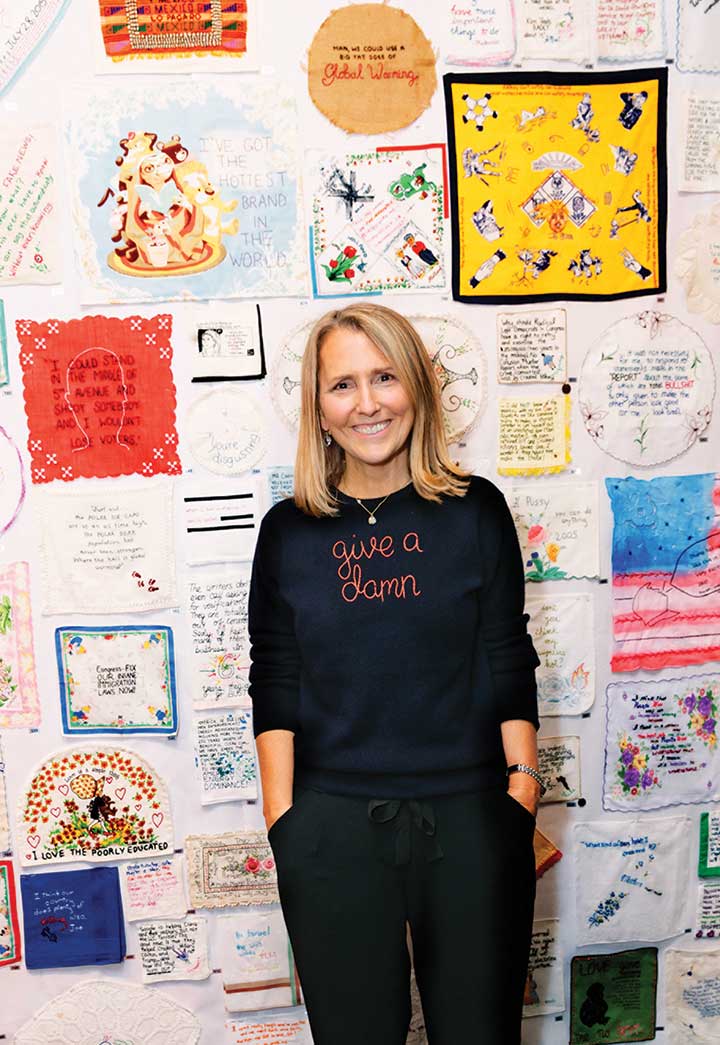Diana Weymar ’91: A Stitch In Time
Diana Weymar ’91 is a visual artist who specializes in embroidery and textile art. In January 2018, President Trump posted a tweet declaring, “I am a very stable genius” — and Weymar suddenly felt compelled to stitch the quote onto a vintage piece of her grandmother’s embroidery. It felt cathartic, she recalls.
“I think that there’s something really powerful about the contradiction between this feminine and beautiful and decorative hobby, that in some ways feels everyday or commonplace, and the absurdity and the surreal nature of this presidency,” she says.
This initial moment of inspiration grew into the Tiny Pricks Project, a collective art piece that aims to create “a material record of Trump’s presidency” through the art of stitching. Over the past two years, participants around the world have contributed to Weymar’s project that comprises more than 2,700 pieces of embroidery, which can be seen online and in galleries across the United States and in London. The result is a body of work that mirrors the anxieties and controversies of the Trump era. The project has more than 44,000 followers on Instagram.
What unites the pieces, Weymar says, is a belief that textile art can be an act of permanent witness at a time when issues are now quickly subsumed by new headlines.
Participants have stitched quotes on fabrics ranging from a same-sex couple’s bedsheets to handkerchiefs passed down from relatives who survived the Holocaust.
“I want great climate!” one contribution reads, echoing Trump’s proclamation in the aftermath of California’s 2018 wildfires. Some quotes are more somber: “When you prosecute the parents for entering illegally, which should happen, you have to take the children away.”
“I’m just stunned by the creativity,” Weymar says. What unites the pieces, she says, is a belief that textile art can be an act of permanent witness at a time when issues are now quickly subsumed by new headlines. In this way, the project owes less to political humor ephemera (for instance, the “Bush-isms” quote calendars popular at the turn of the century) and more to works of collective memory like the AIDS quilt project.
“The goal is to create a kind of canon that can be broken into chapters and exhibited in different places. So if you have a gallery, you could say to me, ‘I want 300 pieces that address these particular issues, like climate change or migration,’” Weymar says.
After she began a graduate-level art program in 2014 (following a career in the film industry), Weymar’s first textile project was a collaboration with artists in post-conflict communities including Northern Ireland and Colombia. Weymar attributes the interest in her newest project partly to the power of social media and partly to the passions that Trump has stirred worldwide.
“What makes these pieces powerful is because the handwork is evident,” she says. “It’s so personal.”












No responses yet